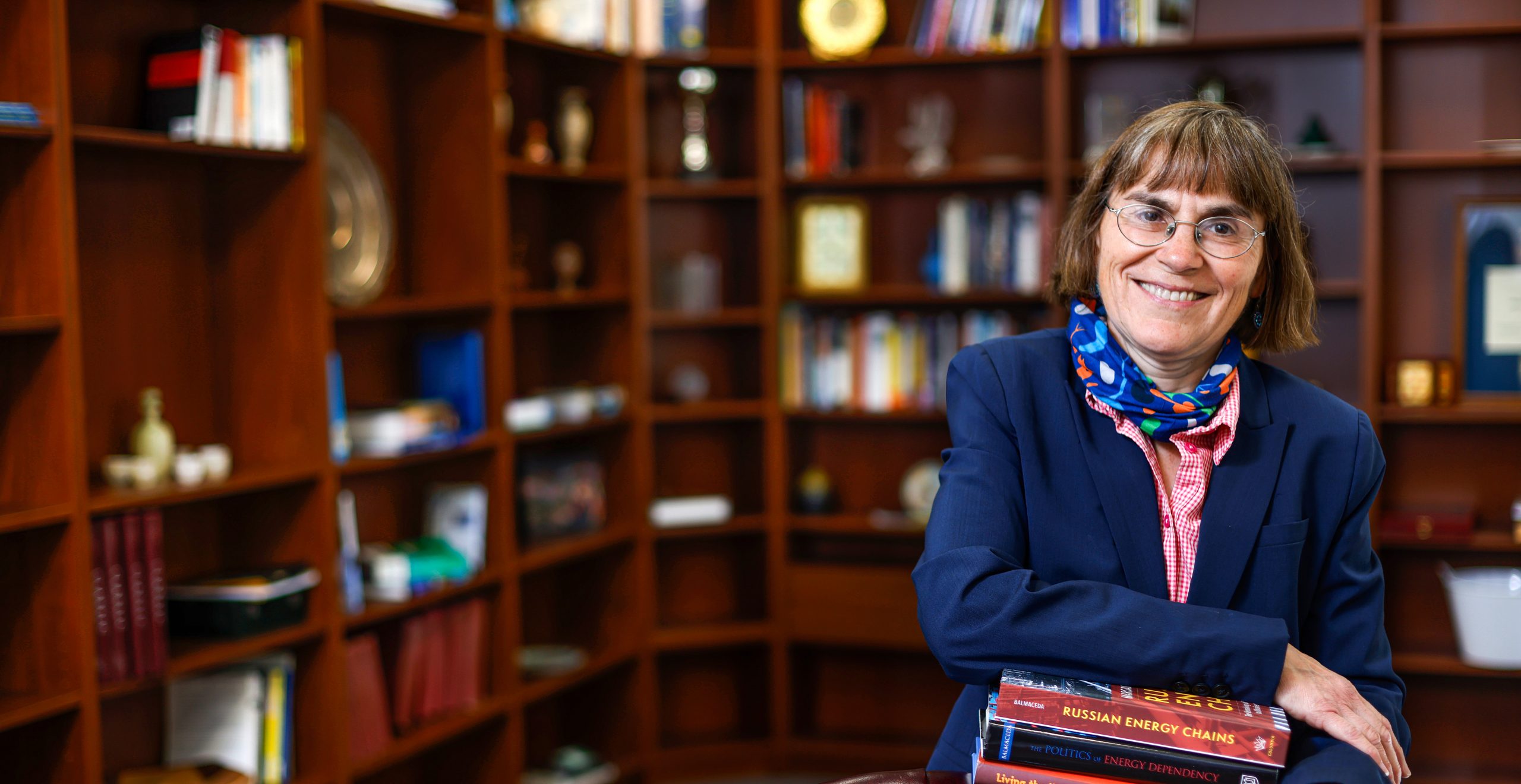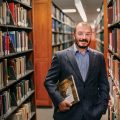By Tonya Russell
The interdependencies of fossil fuels may sound like an esoteric topic, relevant only to a specialized audience, until you consider the critical state of energy politics between Ukraine, Russia and Europe, and the unsettled state of the global economy. Margarita Balmaceda, a professor at the School of Diplomacy and International Relations, headed back to Europe on her third Fulbright fellowship, hoping to increase her understanding of industrial decarbonization, particularly as it relates to the metallurgy sector.
Balmaceda has studied steel and coal production in Ukraine, Russia and Germany for years. A specialist on the comparative energy politics of Eastern Europe, for more than 20 years she has been following the complex relationship between Russian oil and gas producers,
post-Soviet transit states, and European consumers.
She planned to complete her Fulbright project at the National University of Kyiv-Mohyla Academy in Kyiv, Ukraine. But she is being rerouted to Germany due to Russia’s invasion of Ukraine and the continuing war there.
“I won’t be able to conduct my project — which was related to steelmaking technologies — in Ukraine because of the dramatic circumstances,” Balmaceda says. “But I have retooled [my project] into a broader study of the geopolitics of industrial carbon. I’m going to be working on industrial decarbonization at the Institute for Advanced Sustainability Studies in Potsdam, Germany.”
Balmaceda’s mission now is to learn about broader issues related to industrial decarbonization, which affects not only steel production but also production of items such as chemical fertilizers. She’ll also study hydrogen, seen as a promising component in industrial decarbonization. Germany is taking a leading role in developing the technical standards and regulatory framework for industrial-use hydrogen, so being in Germany will be crucial for her.
But it will not be an easy winter. In retaliation for European support for Ukraine, Russia has been cutting supplies of fuel throughout Europe, and Germany has been forced to ration resources, including for businesses. “I’m looking forward to learning something new and bearing witness to what happens when you don’t get Russian energy,” Balmaceda says. Considering the region’s volatility, she is preparing herself for all contingencies. “I’m going to be there at the very moment where the energy crisis that has been created by Russia’s war against Ukraine is going to be showing its teeth,” she explains.
Before the conflict with Russia, Balmaceda says, Ukraine had already been operating in a way that the industry considers to be “very energy inefficient.” Ukraine is heavily reliant on fossil fuels, she says, and it is the only country that still uses the open-hearth furnace.
With the war’s destruction of steel plants and other facilities throughout Ukraine, the country potentially stands on the edge of an industrial change. Balmaceda believes the world may be on the last frontier of decarbonization, and she is curious to see how Ukraine will rebuild, and what it would take for them to adopt certain greener technologies.
“There are plenty of steel factories still working and exporting, but once Ukraine starts to rebuild, the question becomes: how are they going to rebuild? Are they going to rebuild using fossil fuels, or are they going to rebuild with new technologies — hydrogen-based steelmaking, for example?”
A common challenge with transforming the use of fossil fuel in industries like steel is that the usage goes far beyond just electricity production, and the other industrial uses of fossil fuels are much harder to decarbonize than electricity production. This affects other industries, too: cement production, plastic, even fertilizer. “It’s about some chemical processes that they use, and ultra-high temperature processes that they use as well.”
Balmaceda is eager to get started on her journey, propelled by a belief in resilience, which she gets from completing tough projects like cycling across the United Kingdom, one of her most recent challenges. She hopes through her Fulbright journey to not only raise awareness about decarbonization, but to also inspire her students at Seton Hall.
Tonya Russell writes about health equity and the environment.







